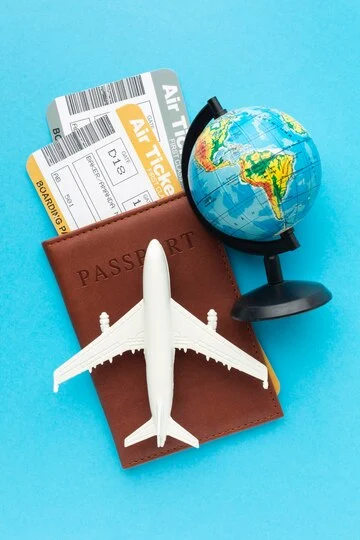Traveling to Iraq offers an extraordinary journey into a land steeped in history, rich culture, and incredible landscapes. From ancient civilizations to modern cities, Iraq is a country waiting to be rediscovered by adventurous travelers. This comprehensive travel guide to Iraq will help you explore the country’s top attractions, plan your itinerary, and enjoy a safe and enriching experience.
What Are the Top Tourist Attractions in Iraq?
When planning a visit, tourists often wonder about Iraq’s most significant attractions. A travel guide to Iraq would be incomplete without mentioning places such as the ancient city of Babylon, known for its legendary Hanging Gardens, one of the seven wonders of the ancient world. Additionally, the historical city of Ur, famous as the birthplace of Abraham, is another must-visit.
Other notable attractions include the city of Mosul, rich in historical heritage, and Baghdad, the vibrant capital known for its bustling markets and stunning architecture. The sacred cities of Najaf and Karbala offer profound spiritual experiences, attracting pilgrims from around the world.
Is It Safe to Travel Guide to Iraq?
Safety is a primary concern when traveling to Iraq. While some areas continue to experience unrest, many regions, especially the Kurdistan Region in northern Iraq, are considered safe and welcoming to international tourists. Major cities such as Erbil, Sulaymaniyah, and Dohuk boast stable environments and thriving tourist infrastructure.
Travelers are encouraged to stay updated on local travel advisories, avoid areas with ongoing conflicts, and respect local customs and traditions. Hiring local guides can also greatly enhance safety and understanding of the region.
What Is the Best Time to Travel Guide to Iraq?
Determining the ideal time to visit is crucial in your travel guide to Iraq. The best seasons to explore Iraq are spring (March to May) and autumn (September to November), offering moderate temperatures and pleasant weather suitable for sightseeing and outdoor activities.
Summer months can be extremely hot, with temperatures frequently rising above 45°C (113°F), especially in southern Iraq. Winter is mild, particularly in the southern parts, while northern regions may experience snowfall, especially in mountainous areas like Kurdistan.
What Cultural Experiences Can I Expect in Iraq?
Iraq is a melting pot of diverse cultures, ethnicities, and religions. Visitors to Iraq can immerse themselves in unique cultural experiences, from attending traditional music festivals and trying local cuisines to participating in religious ceremonies and visiting historical museums.
The Iraqi cuisine is a delightful exploration in itself, with dishes like Masgouf (grilled fish), Dolma (stuffed vegetables), and Kubba (rice and meat croquettes). Tea culture is deeply embedded in Iraqi hospitality, offering a chance to connect with locals.
What Should I Know Before Traveling to Iraq?
Traveling to Iraq requires preparation. Essential items to pack include conservative clothing respecting local norms, sunscreen, hats for protection against the intense sun, and basic medications. Learning a few phrases in Arabic or Kurdish can greatly enhance interactions with locals.
Travelers should also familiarize themselves with visa requirements. While some nationalities can obtain a visa on arrival, it is often advised to secure your visa beforehand to avoid potential issues upon arrival.
How Do I Get Around in Iraq?
Getting around Iraq varies depending on the region and your itinerary. In major cities such as Baghdad, Erbil, and Basra, taxis and ride-sharing services are widely available and relatively affordable. For intercity travel, buses and shared taxis operate regularly.
Renting a car is an option, particularly in Kurdistan, where roads are well-maintained and driving is straightforward. For enhanced safety and convenience, many travelers choose to hire private drivers or organized tours through trusted local agencies.

What Are the Must-Visit Historical Sites in Iraq?
Any comprehensive travel guide to Iraq highlights its abundant historical sites. The ancient ruins of Babylon, the archaeological site of Ur, the ziggurat of Dur-Kurigalzu, and the historical city of Hatra—a UNESCO World Heritage site—are among Iraq’s treasures.
In Kurdistan, travelers should explore the ancient citadel of Erbil, one of the world’s oldest continuously inhabited settlements, and the monasteries in Lalish, the holiest site of the Yazidi religion.
What Outdoor Activities Can You Enjoy in Iraq?
Outdoor enthusiasts will find plenty to do in Iraq. Northern Iraq, particularly Kurdistan, offers scenic landscapes ideal for hiking, trekking, and even skiing during winter months. Popular hiking destinations include Mount Korek, Rawanduz Canyon, and Dukan Lake.
Birdwatching is another outdoor activity, especially along the marshlands in southern Iraq, where rare migratory birds visit seasonally. Fishing, boating, and kayaking in the rivers and lakes are also enjoyable experiences.
What Are the Best Places to Stay in Iraq?
Accommodations in Iraq range from luxury hotels in Baghdad and Erbil to budget-friendly guesthouses in smaller cities and rural areas. International hotel chains provide comfort and modern amenities, especially in larger cities.
For a more authentic experience, travelers can choose traditional guesthouses or family-run bed-and-breakfast establishments. The hospitality in Iraq is exceptional, offering opportunities to interact closely with locals and enjoy home-cooked meals.
Can You Visit Religious Sites in Iraq?
Religious tourism is a significant aspect of travel guide to iraq. The country is home to sacred Islamic sites like the shrines of Imam Ali in Najaf and Imam Hussein in Karbala, which attract millions of pilgrims annually.
Christian historical sites like the Church of Saint Thomas in Mosul and the ancient monasteries of Alqosh offer insights into Iraq’s rich religious heritage. Visitors should dress modestly and respect religious customs when visiting these sites.
Conclusion
Iraq offers an unforgettable journey through history, culture, and tradition. From the ancient ruins of Babylon and the sacred sites of Najaf and Karbala to the vibrant streets of Baghdad, there’s something intriguing for every traveler. Whether you’re exploring historical landmarks, enjoying authentic Iraqi cuisine, or experiencing the warm hospitality of its people, Iraq promises an enriching adventure. For detailed planning and tailored travel assistance, visit worldgateiq .
FAQs
Is Iraq safe for tourists?
Safety in Iraq has significantly improved, especially in major cities and tourist areas. However, visitors should always stay informed, remain vigilant, and consider travel guide to iraq with organized tours or trusted local guides.
What is the best time to visit Iraq?
The ideal time to visit Iraq is during spring (March to May) and autumn (September to November), offering moderate temperatures perfect for sightseeing.
What languages are spoken in Iraq?
Arabic and Kurdish are the official languages, while English is increasingly spoken in tourist areas, hotels, and among younger Iraqis.

